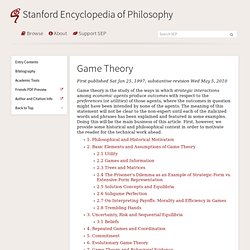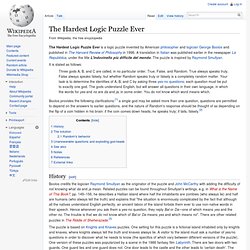

2007-03-04-Allegory_of_Trolley_Problem_Paradox.JPG (JPEG Image, 730x800 pixels) Trapped. Hidden musical code found written into Plato's texts. "Plato’s books played a major role in founding Western culture, but they are mysterious and end in riddles," said Dr.

Jay Kennedy of University of Manchester's Faculty of Life Sciences. Those riddles are finally being unwound, thanks to Kennedy's thorough five-year study of Plato's best-known work, "The Republic". "It is a long and exciting story, but basically I cracked the code. I have shown rigorously that the books do contain codes and symbols and that unraveling them reveals the hidden philosophy of Plato. " So what great wisdom does the secret message reveal? Plato was influenced by Pythagoras, another ancient Greek philosopher and mathematician who is perhaps best known for discovering the Pythagorean Theorem. Kennedy discovered that Plato had placed clusters of words related to music in his master work, which can be broken into 12 equal sections — a pattern he suspected was related to the twelve notes of the Greek musical scale.
Game Theory. First published Sat Jan 25, 1997; substantive revision Wed May 5, 2010 Game theory is the study of the ways in which strategic interactions among economic agents produce outcomes with respect to the preferences (or utilities) of those agents, where the outcomes in question might have been intended by none of the agents.

The meaning of this statement will not be clear to the non-expert until each of the italicized words and phrases has been explained and featured in some examples. Doing this will be the main business of this article. First, however, we provide some historical and philosophical context in order to motivate the reader for the technical work ahead. 1. The mathematical theory of games was invented by John von Neumann and Oskar Morgenstern (1944).
Despite the fact that game theory has been rendered mathematically and logically systematic only since 1944, game-theoretic insights can be found among commentators going back to ancient times. 2. 2.1 Utility. Logical Paradoxes. The Hardest Logic Puzzle Ever. The Hardest Logic Puzzle Ever is a logic puzzle invented by American philosopher and logician George Boolos and published in The Harvard Review of Philosophy in 1996.

A translation in Italian was published earlier in the newspaper La Repubblica, under the title L'indovinello più difficile del mondo. The puzzle is inspired by Raymond Smullyan. It is stated as follows: Three gods A, B, and C are called, in no particular order, True, False, and Random. True always speaks truly, False always speaks falsely, but whether Random speaks truly or falsely is a completely random matter. Boolos provides the following clarifications:[1] a single god may be asked more than one question, questions are permitted to depend on the answers to earlier questions, and the nature of Random's response should be thought of as depending on the flip of a coin hidden in his brain: if the coin comes down heads, he speaks truly; if tails, falsely.[2] History[edit] The solution[edit] Boolos' question was to ask A:
The perspectives of Nietzsche. Philosophy since the Enlightenment, by Roger Jones. Very Short Introductions. Riddles(easy) ] So, an eccentric entrepreneur by the name of Alphonse Null has sent out a press release about his new, mind-blowing hotel: The Hotel Infinity.
![riddles(easy) ]](http://cdn.pearltrees.com/s/pic/th/wu-riddles-easy-11149920)
Null informs the world that this hotel has an infinite number of rooms (specifically, an infinity equal to the cardinality of the integers). A quick tour puts skeptics' claims to rest; as far as anyone can tell, this hotel has infinite rooms. The consequences are mind-boggling, and Null sets up a press conference to answer questions... "So, Mr.
Null, how will patrons get to their room, if their room number has, say, more digits than protons in the universe? " "The elevators have an ingenious formula device instead of buttons... simply input the formula for your room number, with Ackermann numbers or somesuch... your room formula can be picked up at the front desk. "How do you produce the power and water for this hotel? " "I have infinite generators and wells, of course. "What about costs? SCHOPENHAUER'S 38 STRATAGEMS, OR 38 WAYS TO WIN AN ARGUMENT. Arthur Schopenhauer (1788-1860), was a brilliant German philosopher.

These 38 Stratagems are excerpts from "The Art of Controversy", first translated into English and published in 1896. Carry your opponent's proposition beyond its natural limits; exaggerate it. The more general your opponent's statement becomes, the more objections you can find against it. The more restricted and narrow his or her propositions remain, the easier they are to defend by him or her. Use different meanings of your opponent's words to refute his or her argument. (abstracted from the book:Numerical Lists You Never Knew or Once Knew and Probably Forget, by: John Boswell and Dan Starer)